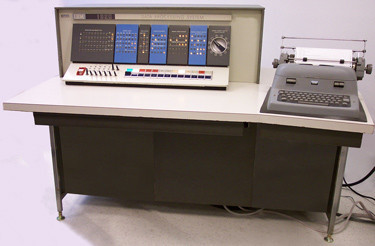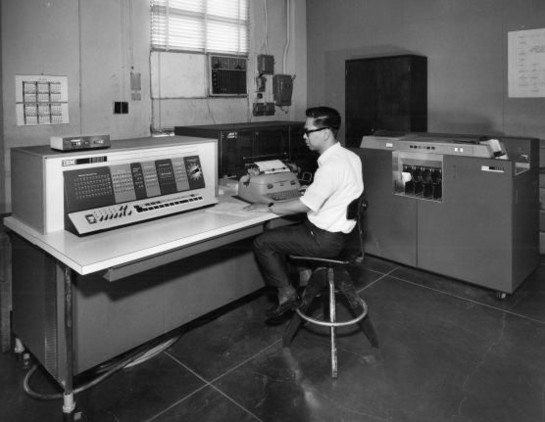Zeitpunkt Nutzer Delta Tröts TNR Titel Version maxTL Fr 19.07.2024 13:57:34 51.612 +74 2.201.079 42,6 Vivaldi Social 4.2.10 1.337 Do 18.07.2024 00:02:08 51.538 +37 2.196.543 42,6 Vivaldi Social 4.2.10 1.337 Mi 17.07.2024 00:02:01 51.501 +40 2.193.235 42,6 Vivaldi Social 4.2.10 1.337 Di 16.07.2024 00:01:34 51.461 +50 2.190.243 42,6 Vivaldi Social 4.2.10 1.337 Mo 15.07.2024 00:01:57 51.411 +38 2.187.141 42,5 Vivaldi Social 4.2.10 1.337 So 14.07.2024 00:00:17 51.373 +38 2.183.921 42,5 Vivaldi Social 4.2.10 1.337 Sa 13.07.2024 00:00:07 51.335 +38 2.182.997 42,5 Vivaldi Social 4.2.10 1.337 Fr 12.07.2024 01:48:55 51.297 +35 2.180.581 42,5 Vivaldi Social 4.2.10 1.337 Do 11.07.2024 00:00:47 51.262 +51 2.185.421 42,6 Vivaldi Social 4.2.10 1.337 Mi 10.07.2024 00:00:00 51.211 0 2.182.055 42,6 Vivaldi Social 4.2.10 1.337
k8quinn (@k8quinn) · 12/2022 · Tröts: 232 · Folger: 27
Fr 19.07.2024 22:12
Like many here on Mastodon I learned computer programming in high school. However, that was in 1965, before minicomputers, microcomputers, or PCs, and before BASIC. No timeshare either.
Instead, I learned on an IBM 1620 (see the alt-text of the picture for more about this weird machine). First I did straight machine code, then I learned SPS (Symbolic Programming System) which was pretty much like assembly language. Finally, I learned FORTRAN II (not a typo).
I learned a lot about how the machine worked and how to translate an idea into code.
The most important lesson was this:
Computers are the most stupid machines in the world that simply do *exactly* what you tell them to do. The art of programming is to make *what you tell them to do* match *what you want them to do and nothing else* which requires completely understanding what the computer will do with each thing you tell it *and completely understanding what it is you want the computer to do.* No language, no IDE, no AI assistant will ever do those things for you though they may help (a little) when it comes to actually writing the code.
Later, as a pro, I went on to write a *lot* of code in assembler for several machines and several high-level languages doing things from machine controls to global systems.
#computers #programming #development

An IBM 1620 computer, a "science and engineering" relative of the (in)famous IBM 1401 business machine. A large desk with a control panel in gray, beige, and blue extends upward from the desk surface. A modified electric typewriter is installed on the right end of the desktop and used as a console. The 1620 had no fixed word size, instead operating on strings of BCDIC (not ASCII) characters between special characters known as "record marks." That meant there were no registers of the kind in more-recent computers and no address pointers as such. No hardware adder either, all addition was by table lookup. Some wag thus dubbed the machine CADET for "Can't Add Doesn't Even Try". There was an advantage, though: you were not restricted to either binary or base 10 numbers and could used alphabetic characters to implement base 36 math. Although you *could* use the console typewriter to enter programs and data then get output, that was certainly not recommended. Instead, you punched cards and put them in the "high-speed" reader/punch and got your output as cards from the same device. Output cards could then be taken to a separate machine that simply printed whatever was on the cards. Our machine at Cass Tech actually had a hard disk, a whopping 3MB in a washing-machine sized package. There's more about both the computer and the school on Wikipedia.

Another picture of an IBM 1620 computer with a high-speed reader-punch in the right background. An operator sits at the console typewriter.
[Öffentlich] Antw.: 0 Wtrl.: 1 Fav.: 0 · via Web